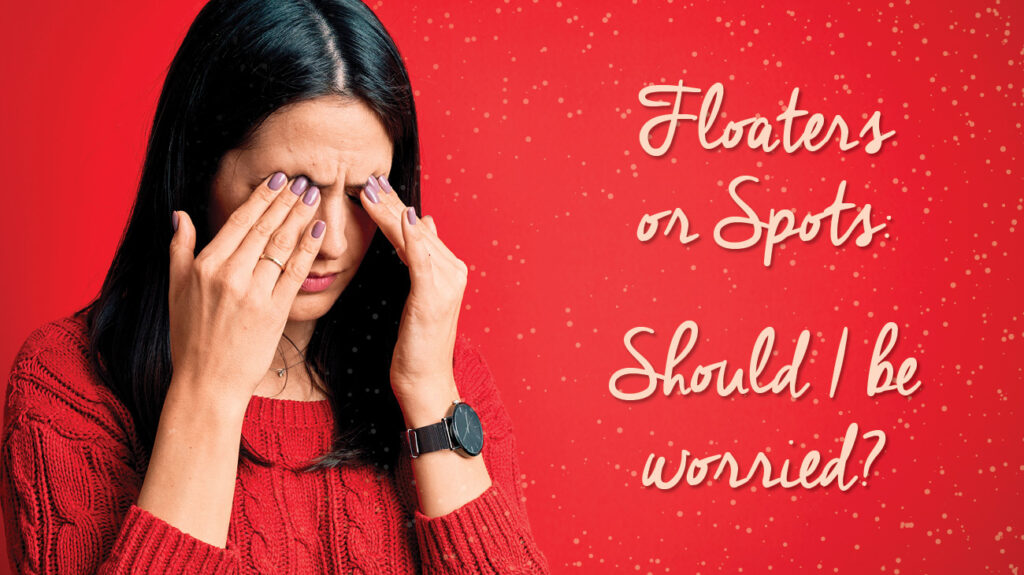Have you noticed tiny shadows cast upon objects? Small spots, lines, or other shapes caused by floaters in your eye aren’t a big deal most of the time. Read more below to find out when you should contact your doctor about spots in your vision!
Floaters or Spots, are they normal?
As you age, the gel-like consistency in your eye begins to dissolve, creating floaters in the watery center of your eye. While you cannot see the particle floating in your eye, a shadow of these particles reflects off the objects. Floaters or spots are normal, and typically, treatment is not necessary.
Flashes of light
When light enters your eye, it sends a message to the retina. The retina then produces an electrical impulse to your brain. The brain then interprets this impulse as an image.
If the retina is tugged or torn, it’s common to see flickers of light. Depending on the retinal tissue’s severity, the flashes or flickers of light can be temporary or continue indefinitely. If you see flashes or flickering light in your vision, call our office immediately!
Shower of floaters
Seeing a few new floaters is not an emergency. However, if you suddenly see a shower of floaters or spots, this may cause concern. The sudden appearance of flashes of light could mean that damage is occurring to your retina. If any of these symptoms suddenly appear, call our office immediately to discuss them with your eye doctor.
Dark shadows in peripheral vision
If your floaters or spots become darkened peripheral vision or larger areas start to darken and stay in your peripheral vision, call our office to schedule an appointment immediately. Loss of sight in your peripheral vision could be the sign of a more severe vision problem.
It is our goal to keep your eyes healthy throughout your life. If you notice trouble seeing or are experiencing pain with your vision, schedule an appointment. While you can’t prevent some eye diseases, there are some general tips to protect your vision and maintain eye health.
- Receive a comprehensive eye exam
- Maintain a healthy diet
- Drink more water
- Wear protective eyewear
- Rest your eyes



